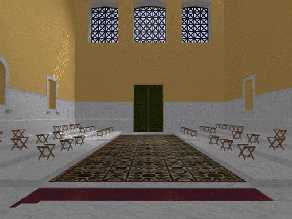
| Balbvs | Links | History |

By the lex Villia Annalis limits were set on who old cadidates had to be before standing for certain offices. Sulla toughened up this law desiding that
There were those that diregarded these rules the most famous been Pompey who held his first Consulship after returning from Spain in 70 without ever holding any other magistraty only ever having had extraordinary commands. Infact he knew so little of Senatorial prosidure that he got his friend Varro to write a book on it to help him.
Below is a short discription of the major offices of the Roman state.
They were elected by the comitia tributa. Sulla raised there number to twenty each year and provided them with automatic entry to the Senate.
There were many other posts that could occupy the elite that could bring advantages and honour. There was no proffesianl preisthood, these positions were taken up by members of the ruling class, so Caesar became ponifex maximus, Pompey was an augar. Such posts had a political dimention, the seeing of bad omens could stop assemlbes of the people, therefore holding up or stopping legislation. Biblius tried this during Caesars consulship. There were also commities, for the distribution of land, looking into provincail government, posts for the upkeep of the water suply or the roads. All these had the oppotunity of making conections and gaining clients. So even if an indervdual is not holding one of the major officies, they had plenty of other minor positions they could fill.
| Balbvs | Links | History |